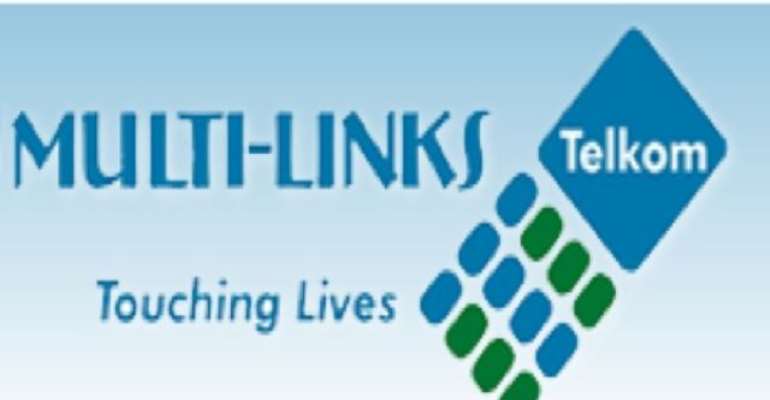Multi-Links Deploys Hi-tech Solution For Fibre Optic Protection

ABUJA, July 21, (THEWILL) - Multi-Links Telkom has achieved another laudable milestone enabling network availability and enhancing superior customer experience with the completion of the Dense Wavelength Division Multiplexing (DWDM) project which is designed to make the fibre optic network of Multi-Links Telkom more robust as it will provide greater redundancies and a buffer to network down time resulting from fibre cuts (the completion allows us to offer industry leading SLA’s with guaranteed uptime of 3 nines reliability/ redundancy.
Ijeoma Abazie, Chief Corporate Affairs Officer of Multi-Links Telkom in statement made available to THEWILL said with the completion of the DWDM project and the cut over of SDH sites, customers now enjoy protection from prolonged downtime on account of fibre damage, Olurotimi Aborisade, Manager, Transmission Planning, Multi-Links Telkom said that the impact of fibre cuts are less noticeable and that DWDM project will significantly improve the quality of service delivery and will enable Multi-Links Telkom customers to enjoy high level of service availability with seamless switchover to redundant transmission paths, in spite of the fibre cuts.
Abazie noted that Multi-Links Telkom’s corporate customers on the leased line service and individual subscribers on the broad market platform will now enjoy more stability in network availability and industry benchmark SLA delivery for superior customer experience. This means that Multi-Links Telkom’s corporate clients would be empowered to more effectively manage their respective businesses.
Before now, corporate customers in Nigeria on leased line circuits often experience downtime as a result of the persistent fibre damages in respect of which the SDH network could offer little protection. However, the Multi-Links Telkom DWDM network has built in redundancy that allows traffic to be re-routed if fibre cut is experienced on a particular route because each route has been designed to carry two channels with the second channel serving as the alternative route when a cut happens on the first route.
This new initiative which is superior to the linear SDH facility on the network also has an enhanced capacity in terms of the volume of data and connection that it can offer Multi-Links Telkom’s corporate clients. Corporate clients can now deliver more offerings to their customers by the sheer size of the capacity embedded in the DWDM component which is of higher capacity to the linear SDH network.
Olurotimi Aborisade, who led the project team, said that the DWDM fibre ring is a robust facility that offers greater capacity and higher redundancy in terms of the flexibility of the network to provide alternative routing for traffic whenever downtime is experienced on the network on account of vandalization or other service disruption.
Ben Machoga, Executive, Network Engineering said that the DWDM network provides a greater platform for Multi-Links Telkom to offer better Service Level Agreement (SLA) with its corporate clients and thereby significantly improve revenue opportunity by blocking loopholes on the revenue channels.
With the expected network stability and availability resulting from the implementation of the DWDM project, Ben said Multi-Links Telkom would enjoy enhanced revenue growth as our existing and potential customers can migrate their mission critical applications onto services offering much higher availability. He noted as well that with the DWDM network the technical team would have fewer challenges in micro managing the incidences of fibre damage which often result in network instability and commercial challenges regarding fulfilling customers’ expectations and satisfactions.
So far, major cities in Nigeria have already been covered in the DWDM deployment project. Cities presently covered by the DWDM ring include Lagos, Benin, Ibadan, Abuja, Jos, Bauchi, Kaduna, Kano, Zaria, Ife, Akure, Warri, Sapele, Aba, Umuahia, Enugu, Port Harcourt, Asaba, Markudi, and Onitsha.
